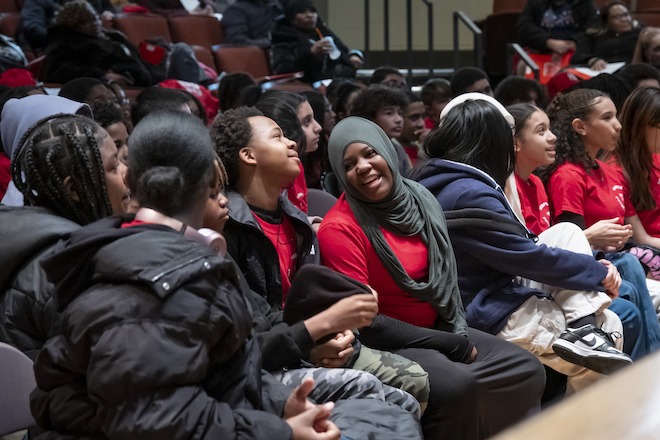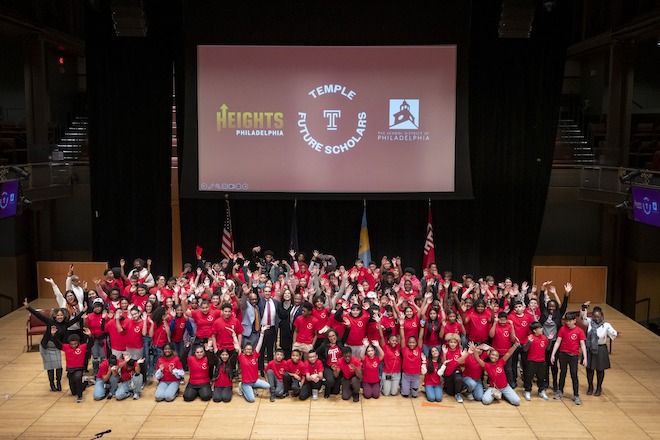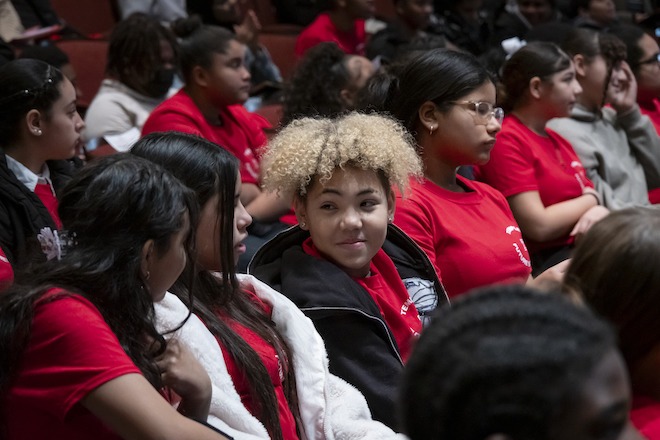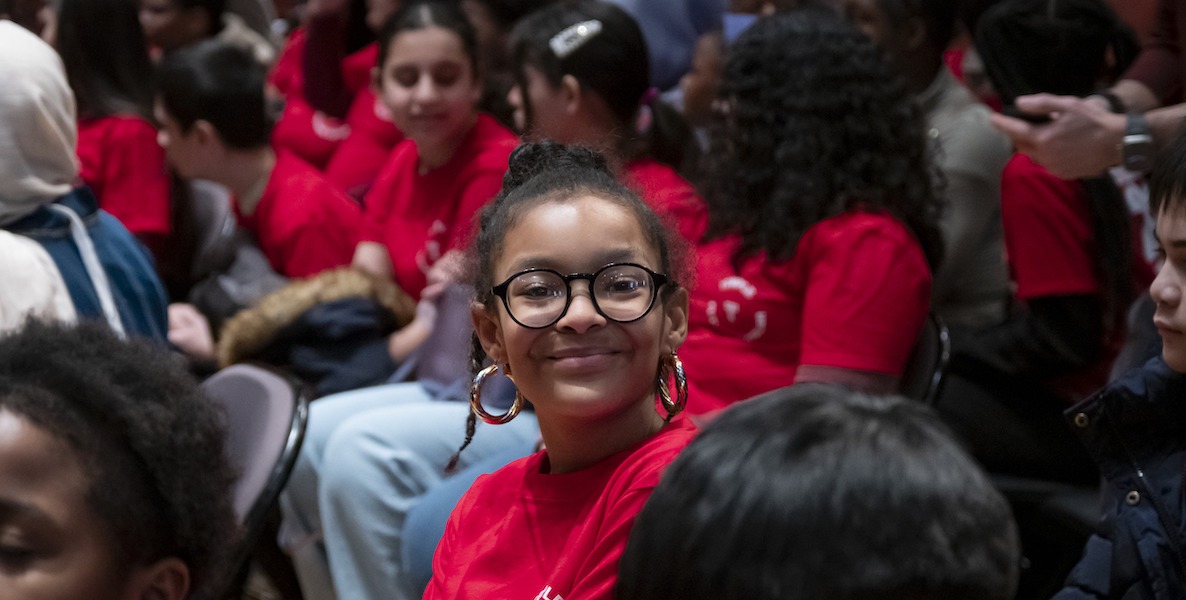Late last month, Temple University announced a new partnership with the School District of Philadelphia and Heights Philadelphia, a nonprofit economic mobility catalyst for youth. Temple Future Scholars is a program that will go a long way toward establishing inclusion for Philadelphia students.
The program is new to Temple, but it’s not unique to higher ed. In 2008, Rutgers University established Rutgers Future Scholars, a middle school through college acceptance program offering “robust mentoring, academic support, and tuition assistance” to low-income students. Rutgers’ program serves its five New Jersey host cities: Camden, Newark, New Brunswick, Piscataway and Rahway. Over the last 15 years, Rutgers’ program has empowered 3,500 students who graduate at a rate that’s 20 percent higher than the national average (87 percent).
If ever there were an idea for Philadelphia to steal, this is it. Our city’s high school graduation rate is 77.5 percent. And, while at Philly’s criteria-based public high schools, more than 75 percent of graduates go onto college, among open-access graduates (of neighborhood and other criteria-less high schools) that number drops to 38 percent, according to Technical.ly. According to a Temple report on information provided by the School District of Philadelphia, just 51 percent of Philadelphia public school students pursue higher education.
Building Temple Future Scholars
The Temple Future Scholars program has been a year in the making. Temple Vice Provost for Enrollment Management José Aviles brought the idea from his previous work at Louisiana State University (LSU), which had implemented the Rutgers model.
The program begins later this month with 120 scholars from seven Philadelphia middle schools: Mary McLeod Bethune, Morton McMichael, Paul L. Dunbar, Russell H. Conwell, Tanner G. Duckrey, John F. Hartranft, Juniata Park Academy. These students had to meet income guidelines, demonstrate academic readiness and seem likely to meet the time commitments. But those 120 are just the start.

Once students enter the program, they are signed on through 12th grade. Each year, Temple plans to expand to 200 seventh graders, which means in a few years, they’ll enroll 1,200 seventh to 12th-grade Philadelphia public school students at a time.
Starting later this month, Temple Future Scholars will attend monthly Saturday meetings on the Main Campus; these meetings will last through the school year. Temple students will mentor the Scholars through frequent communication and visits to their schools. In summer, Scholars will participate in college and career readiness programs.
Temple faculty, staff, and students will also be on call for advice on college preparation. What middle and high school courses should Scholars select? How might they balance academic and co-curricular activities? Are internships available? How might students fulfill family obligations while maintaining high academic achievement?
In a statement last week, Temple President John Fry celebrated the program as a pathway for Philadelphia low-income, first-generation college students to realize high hopes for the future: “This is the type of program that can dramatically raise the educational aspirations of students and their families, leading to positive outcomes for all involved. This is a great day for Temple, and more importantly, it’s a great day for the children who attend these schools.”
While five other universities have implemented the Rutgers model (University of Michigan, Stony Brook, LSU, James Madison and University of Toronto), the Temple program is unique in its partnerships, not only with the School District Philadelphia, but with Heights Philadelphia, which provides coordinators for each of the seven middle schools.
In addition, Heights Philadelphia enlists college students who have been provided Cecil B. Moore full-tuition scholarships to Temple. Since the Cecil B. Moore scholarships were launched four years ago, the first recipients are now Temple seniors ready to serve as Fellows mentoring the seventh grade Temple Promise Scholars. Each year, Cecil B. Moore Fellows will join with Philadelphia School District counselors and Temple faculty, students and staff to provide experiences of academic rigor and socio-economic development.
“At Heights Philadelphia, students are at the center of everything we do. It is our goal that all Philadelphia youth will have access to the educational and career opportunities that support their path toward economic mobility,” says Heights Vice President of Program Strategy and Partnerships Chris Avery.
“Our expanded partnership with Temple University, through the launch of the Temple Future Scholars program, builds on our longstanding collaboration through the Temple Promise and Cecil B. Moore scholarship programs. This partnership has opened doors for students and serves as a model for how other colleges and universities can support young people on their journey to economic mobility. If we truly want to leverage social capital, it will take a collective, citywide effort — one where institutions, businesses and communities come together to create high-quality educational and economic opportunities for Philadelphia students.”
What’s particularly good about the program?
First-generation college students need support long before high school. In households with a college tradition, higher education is a frequent topic of family conversation. Kids in their highchairs will hear tales about parents’ university experiences and plans made for their own future college attendance. I’ve been known to gift new grandchildren with tiny Penn sweatshirts. (Sorry, Temple, Penn’s my alma mater, but your good works may inspire me to order Temple sweatshirts next time.)

It’s important that school/university partnerships instill attitudes and provide the social capital (networks and connections) for students who do not come by these advantages through birthright. Early opportunity to understand the value of college is key to leveling the playing field. It’s also a way to counter social media and podcasts that instill negative attitudes about higher education.
I’ve written frequently about the benefits of college for all, including those who are interested in hands-on, technical fields. Two years at the Community College of Philadelphia is an affordable way to get students started in these areas. Transferring to Temple or to another college or university can then provide perspective for leadership in these fields.
If I were queen, I’d start college preparation in preschool. But Temple’s choice of launching the Scholars program in seventh grade is laudable. Middle school is a time of transition. With kids experiencing what I call “hormone poisoning,” it’s essential for them to participate in group activities, team sports, theater performances, orchestra — and now, for students in the seven selected middle schools — the Temple Future Scholars Program.
It’s all about relationships. Temple Future Scholars will regularly interact with student mentors, with Temple faculty and admissions officers, and with each other. Structured activities will be designed to keep their curiosity alive. Curiosity is the most important characteristic of potential college students. And yet we can observe through early years the unintended suppression of curiosity. Just watch the reckless curiosity of a one-year-old eager to learn about everything. Parents have no choice but to reign in the baby’s inquisitiveness about hot stoves and city streets.
As children grow, however, it’s important to balance the requirements of safety and the joy of curiosity. I’d like to see more attention given to the curiosity quotient. The Temple Future Scholars Program opens up new avenues for exploration and risk-taking. Sustaining the opportunities for six years, from seventh to twelfth grade, builds social capital.
Temple’s commitment to Philadelphia — and to the nation
The Temple Future Scholars Program combines with the Temple Promise Program to make Temple a model for actively implementing diversity, equity and inclusion. Philadelphia high school graduates whose family’s adjusted gross income is $65,000 or less are eligible for free tuition and fees (as documented by FAFSA).

Since its launch for the class of 2028, the Temple Promise has been highly successful: 489 students are currenting receiving Temple Promise funds. This cohort was part of a total 1,101 students in the class who hailed from Philadelphia, a 68 percent increase over the previous year. The Temple Promise addresses financial barriers. Now, the Temple Future Scholars Program combats social and psychological barriers for younger Philadelphia students.
Together, these programs hearken back to Temple’s original mission, upon its 1884 founding by North Philly Baptist minister Russell Conwell: Offer quality education to first-generation college students in the Philadelphia area. Already, nearly 500 local students in Temple’s current freshman class have received tuition money through Temple Promise.
I would further argue that these programs are appropriate options to property taxes, which Temple does not pay. These university investments may not be official PILOTS (payments in lieu of taxes), but they fulfill the goal of serving the public good.
During this fraught time it’s important to do diversity, equity and inclusion, even when talking about it is challenging. The Temple Future Scholars Program puts vision and principle into action. I hope that every Philadelphia-area college and university will create its own future scholars programs. There can never be too many. Ideally, Philadelphia colleges and universities would come together in a city-wide collective to support students in every neighborhood to realize the benefits of higher education.
What we can do
- Thank Heights Philadelphia for its vision, strategy and coordination.
- Thank Temple, Philadelphia’s Public Research University, for investing in Philadelphia students. If you are able, contribute philanthropically to Temple Future Scholars. Inform neighbors and friends about the new opportunities at Temple for inclusive, equitable college attendance.
- Encourage other Philadelphia-area colleges and universities to design similar programs, starting in middle school or earlier. There can never be too many opportunities of this kind.
- Bombard Congress and the PA legislature with demands that they stop attacking diversity, inclusion and equity — and instead support programs like Temple’s.
Elaine Maimon, Ph.D., is an Advisor at the American Council on Education. She is the author of Leading Academic Change: Vision, Strategy, Transformation. Her long career in higher education has encompassed top executive positions at public universities as well as distinction as a scholar in rhetoric/composition. Her co-authored book, Writing In The Arts and Sciences, has been designated as a landmark text. She is a Distinguished Fellow of the Association for Writing Across the Curriculum. Follow @epmaimon on X.
Correction: A previous version of this post misclassified José Aviles’ position. He is Vice Provost for Enrollment Management at Temple University.
![]() MORE FROM ELAINE MAIMON
MORE FROM ELAINE MAIMON




